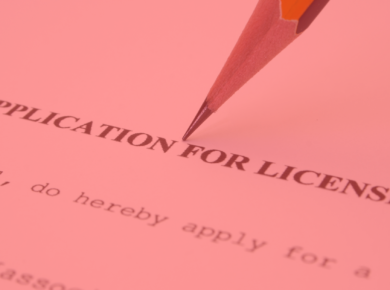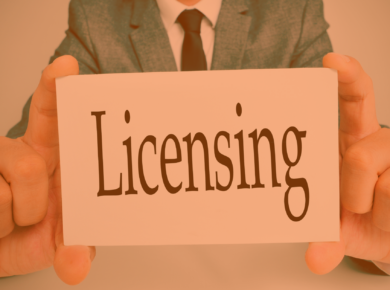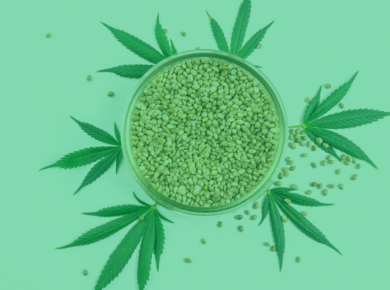Here’s a quick wrap up of the episode, and some links where you can watch the full length interview..
Watch the Full Interview (Just Hit Play)
Or listen to the Audio on Spotify and other podcast apps;
Subscribe for more Interviews each week!
In Summary
Dylan Steeves, GM of RDSP Farms in Oregon joins us on the HempList this week, hosted By Chase Nobles, Founder of Kush.com
Dylan and Chase have a great discussion as of July, 2021 discussing everything from beneficial insects to the current state of the Hemp Industry and Delta 8. Dylan happens to be in his truck with nematodes and lacewings that he’s on the way to apply at his Hemp Farm in Southern Oregon. Chase asks about how he uses the insects before they jump into Dylan’s background in wine, and some of the CBD, CBG, CBN, & Delta 8 products that RDSP Farms has to offer. Finally they discuss how CBD sales have gone down since the introduction of Delta 8 and what that holds for the future of the Hemp Industry!
Transcript (Auto-Generated)
hey everybody chase nobles here founder
of kush.com i’ve got dylan steves
from rdsp farms here today out of oregon
how are you dylan
doing great man thank you for asking
another beautiful day
looks like you’re in your truck uh
before the show you’re telling me you’re
at the home depot parking lot what do
you guys got going on on the farm today
oh a lot uh yeah we’re actually uh
we’re about to launch some um some uh
beneficial insects
so we have uh some lace wings and
predatory nematodes uh we try to do
everything
uh well we do do everything as
biodynamic as possible
uh we’re a usda certified organic farm
uh so
why use pesticides when nature provides
a lot of beneficial bugs that you can
use hey
right on so now by launch beneficial
insects are you releasing like hundreds
of thousands of insects into a field
what does this actually entail because
i’ve i haven’t been a part of that
process before
yeah yeah exactly yeah so to my right my
immediate right here i have a
uh ice chest um and it’s uh yeah we have
like actually millions of uh lace wings
and predatory nematodes
both uh one the lacewings um they’re
predominantly going after like aphids or
like trips or anything and that kind of
that’s like on the actual leaf itself
uh and they have these like little tiny
strips they’re like little cards
uh if you can imagine like uh i like the
the thickness of like an index card
uh they have little hooks and they stay
in like a hibernated state
uh in around 50 degrees 55 degrees
uh and then you really hook them to this
to the base of the plant
and then as obviously they warm up they
thaw out they come out of the hybrid
hibernation and then they actually start
eating on any of the
negative bugs or insects that you may
have out there uh it’s also it’s
we don’t have any issues yet it’s really
just more of a preventative measure
because once the population does start
to establish there they kind of stay
there
uh assuming that there’s a food source
of course if there’s no food source
then they’ll eventually make their way
off to somebody else’s field but
worst case scenario they’re helping
somebody else out maybe our neighbor for
south street so
um yeah that’s what that’s why i say
launch like we’re actually like hooking
them to the base of the plants
you’re releasing millions of bugs into
the fuel yeah that sounds
that sounds like an uh that sounds like
an adventure because uh
yeah you know three bugs you know kind
of creeps me out i couldn’t imagine
millions of them so good
good luck i hope you survive i hope you
don’t uh
i don’t if you don’t inhale any i
inhaled a mosquito the other day and it
freaked me out
but uh well uh dylan you know before we
jump into it it sounds like you um
you you have some experience you know
before you know building this hemp farm
of recreational cannabis wine making all
kinds of different things what
what led you to him kind of what what’s
the what’s the origin story here that
led you to hemp and led you to you know
releasing millions of bugs in a couple
hours
yeah um yeah so i guess uh
kind of brief synopsis so yeah my
background was predominantly in wine
traditional cannabis as well as more of
a side hustle
um but i was a wine maker for a better
part of
almost a decade like like eight years um
and uh got into viticulture and didn’t
doing some stuff in the vineyards as
well
mostly on the production side of things
uh but back in 2016 i wanted to do
a cbd infused wine and uh the hemp
industry is still illegal at the time
the farm bill had not
yet passed um so we’re still in that
90-year probation period
um uh and yeah so anyways i
wanted to find or source a quality
organic source of uh
cbd uh to actually do a cbd infused wine
and i couldn’t find anything 90 percent
of it came out of china
and then maybe in the netherlands uh it
was difficult to get over here
and there was no telling on what quality
you’re gonna get
so um i originally from southern oregon
i relocated down to san diego for about
you know those eight years seven years
uh while i was i had a small wine
company down there and making wine for
other people
um and then i was talking to my father
who
still lived in southern oregon he was a
property developer
and he was just telling me about this
cool spot that he got uh just to do what
he does just flip the property in
southern oregon
and he was kind of describing it seven
acres of land
it was kind of a dilapidated neglected
piece of dirt but it had a lot of great
potential it was actually originally the
home site of david from harry and david
back in the 40s
and that’s actually where they started
their empire with the two brothers
and i was like oh well that sounds kind
of cool can i come up and check this
piece out
so i went up there and i checked it out
and i was like like do not sell this
piece
instead of me trying to source any you
know
hemp or hemp based products from oh you
know who knows where
let’s just bring it in house let’s just
cultivate it
and then i’ll all do all the wine making
of course and and the cultivation and
we’ll put it we’ll sell it
by way of wine you know the cbd1 so
basically partnered with my father on
that sold my wine company
moved from san diego me and my girl came
up
and just you know started living life on
the farm
um and then we kind of after the first
year realized that
well one there was a barrier to entry on
the wine thing at the time olcc
obviously still regulates alcohol in the
state of oregon and then
cbd was not a federally regulated crop
so it was illegal to actually do the cbd
so that was
a bit of an issue um so and then while i
was
trying to do the whole process of seeing
how i could market my wine my cbd wine
i realized that this industry of hemp in
general was way bigger and it was way
more in its infancy
wine was definitely a rich man’s game
for a reason it just costs a whole lot
of money that’s reason why a lot of big
companies buy
giant conglomerates and and buy
vineyards just because it’s just it’s a
lot it’s really hard to
be a micro winery and make an actual
name for yourself
uh without having some serious financial
backing so
uh this i was like hey we might be in
the right place right time let’s focus
on this hemp thing
and yeah five years later here we are so
right on well
congrats that is a hell of an origin
story it sounds like you uh
made a pretty big pivot there selling
the wine business
and i’m sure that was a lot of risk but
uh being able to get a farm up and going
you know
and and working on these products it
sounds like you know
rdsp it farms is is a as a portion of
what you do but you’re actually taking
products
all the way fully through the process
into retail
can you tell us a little bit about what
you’re making and uh and and how that
penetration into the retail market is
gone
because that’s a big undertaking going
you know farming
in and of itself but then actually
taking a product fully to retail is a
whole other animal
how’s that been for your ass totally
yeah so yeah you know the the you know
rdsp
you know 1.0 or beta version was just
the farm right and you know everyone was
like oh yeah you can
you’ll just uh you’ll sell bulk products
uh
bulk oil or biomass when that was you
know an actual viable
portion of the market uh and then we
quickly
pivoted into uh getting into the
services side of things
uh and then we then started uh two
companies
underneath rdsp so we have rdsp is so
you know kind of the mothership we do
lots of white labeling co-packing
services uh both in the da side and the
traditional cbd side of things
uh and then we have a a kind of a
upper tier premium cbd brand uh that’s
called organ originals
uh primarily focusing on on designer oil
as we call it
uh like you know we just launched a pen
called our pine og
um uh using our actual just steam
distilled terpenes from our field as
well as a mixture of like proprietary
botanical blends
uh we have a cbd or sorry cbg cbn
cbd pen um and then we of course have
our cbd
vape pens as well premium pre-rolls cbd
a premium cbd gummy uh we’re going to be
expanding that line uh so that’s like
our cbd line is oregon originals and
then we have another lion it’s called
unicorn brand
and that’s all of our da products uh d8
keith joins d8 flower
d8 moon rocks uh d8 gummies uh so we’ve
kind of just compartmentalized the
business
into three tiers well really four
if you include the co-packing and the
white labeling side of things uh you
know there’s the farm
uh and then there’s the cbd brand
there’s the d8 brand and then there’s
the services
and the co-packing um so i’m sure your
accountants
love you over there with the multiple
entities
i understand the pain you know now
uh when it comes to delta 8 products in
oregon what has your experience been
with regulations
shifting gray area good to go you know
how has that impacted your business on
the
you know the the delta a thc products
yeah so that’s it’s like you ask 10
people you get 10 different opinions on
that one um
so house bill 3000 did pass with the
house i don’t think it’s been passed in
the senate it looks like it
might pass in the senate um courtney
moran who’s kind of like the hemp
leader or hemp industry uh lawyer and
and uh council uh she’s she was a large
part of getting the actual
original uh uh farm bill passed the
first place
um everything bureaucracy
moves slow as everyone knows so if it
does pass
in the in the senate even let’s say
tomorrow it’s not
as in the state of oregon dea products
are not going to just also get ripped
off of shelves and
and no longer be allowed to be
manufactured it’s going to take some
time
they allow a grace period i’m not
exactly sure what that looks like
uh obviously prior to any
like it was a legal gray area in the
beginning and then it became like
illegal
like fine it’s totally white market and
now it may go back into a gray area i’m
not exactly sure where it’s headed
uh but we’re gonna ride the d8 train as
long as possible we
we were kind of actually uh we were kind
of a late adopter in the first place
um we didn’t actually get on it until
about
i’d say maybe five or six months ago uh
and it was mostly as
a service for other people um and then
we started our unicorn brand
uh knowing that it could the bottom
could fall out and then we would just
pivot that to just
yet another cbd line of ours kind of
more of like an economic like kind of a
c-store style mylar bags and you know
just a little bit more you know cost
effective uh
cbd products um versus uh our organ
originals which is a little bit more
upper end
um so we’re gonna we’re gonna ride the
train until
someone tells us not to um i will say
though that is that
i mean d.a has been a bit of a
blessing and a curse uh we i mean we’ve
been in the industry five years which
doesn’t seem like super long for most
businesses but for the hemp
industry it’s pretty old uh and pretty
well established
and we we’ve had a lot of you know
repeat customers we’ve had a lot of
returning customers over the years
obviously we still have to you know it’s
a game of attrition you have to get new
customers every each year there’s always
competitive you know competition out
there
but uh this once the last six months
cbd sales really stalled out and
uh we relied heavily on our d8
both as our service as well as through
our own branding
um we relied on those d8 sales to really
keep our operation afloat
uh and many farmers i mean honestly i i
know
we do a lot of the production whether it
be d.a pre-rolls or da sprayed flour
or or the juice flour or moon rocks for
customers and
i know i mean there’s 20 or 30 top-tier
farms and companies in the state of
oregon that are that come
through us and they’ll they tell us you
know time and time again that like
luckily we have d8 because nothing else
is selling currently
that said if da wa was completely gone
altogether
maybe our cbd sales wouldn’t have dipped
so much um
so it’s it’s a hard thing to pin down
i guess but no i think i think you had
the nail on the head you know
you talk to legal teams and the opinions
are
you know proceed with caution um based
on federal
regulation then each state seems to have
been implementing at their own pace and
so
depending on what state say who knows
what will happen
but uh proceed with caution right uh
that’s it sounds like that’s what you
all are doing which is which is smart
but it has helped a lot of farmers right
and so when you look at it from that
perspective it’s really been a gift to
the industry to be able to
pursue that market that being said you
know you’ve got seven acres on this farm
right now
how much of it are you actually growing
and then what’s what’s your plan over
the next couple of years with the farm
so we actually saw our first year of the
seven acres we cultivated 3.5
then we scaled up to 15 then we scaled
up to
80 off of four different sites uh
and just kept on building out the
facility last year we did 55 this year
we’re doing
30 outdoor acres and two greenhouses
as well as a potential indoor operation
that we’re in the middle of setting up
and then some light depth
so we’ve been literally all over the
board we’ve kind of found the sweet spot
at 30 it’s enough to still have
volume and be like like an uh
in the hunt for those large clients
uh and those you know those customers
that want to have a big overseas program
and and are nationally distributed and
so
we still want to have that volume but at
the same time 30 acres is
so much of flour which is always what we
really grow for we not i mean the
biomass and
and other byproducts are byproducts you
know we don’t
say no to them but that’s not our focus
at all flour is 100 our focus
so 38 is enough volume but at the same
time
it’s also manageable um doing 80 acres
of flour it was
brutal i believe that man 30 acres 30
acres sounds like a lot 80 acres sounds
unfathomable no wonder you have millions
of insects in your
um in your car right now
yeah exactly yeah dylan i i’m really
excited to see
how this year turns out for you i’m glad
we’re able to connect and do an
interview
let people uh you know get to know you a
little bit better because
you’re all over kush.com you’re a great
vendor on there and the community
wouldn’t be the same without companies
like yours so
appreciate you being a part of the
community appreciate you being a big
supporter
and excited to see what you do in the
next year or two
thank you yeah we appreciate the
opportunity on your platform and thank
you for the time in the interview
awesome dylan we’ll talk soon



